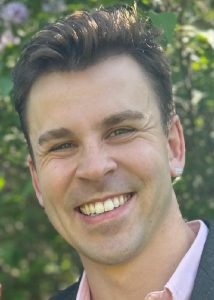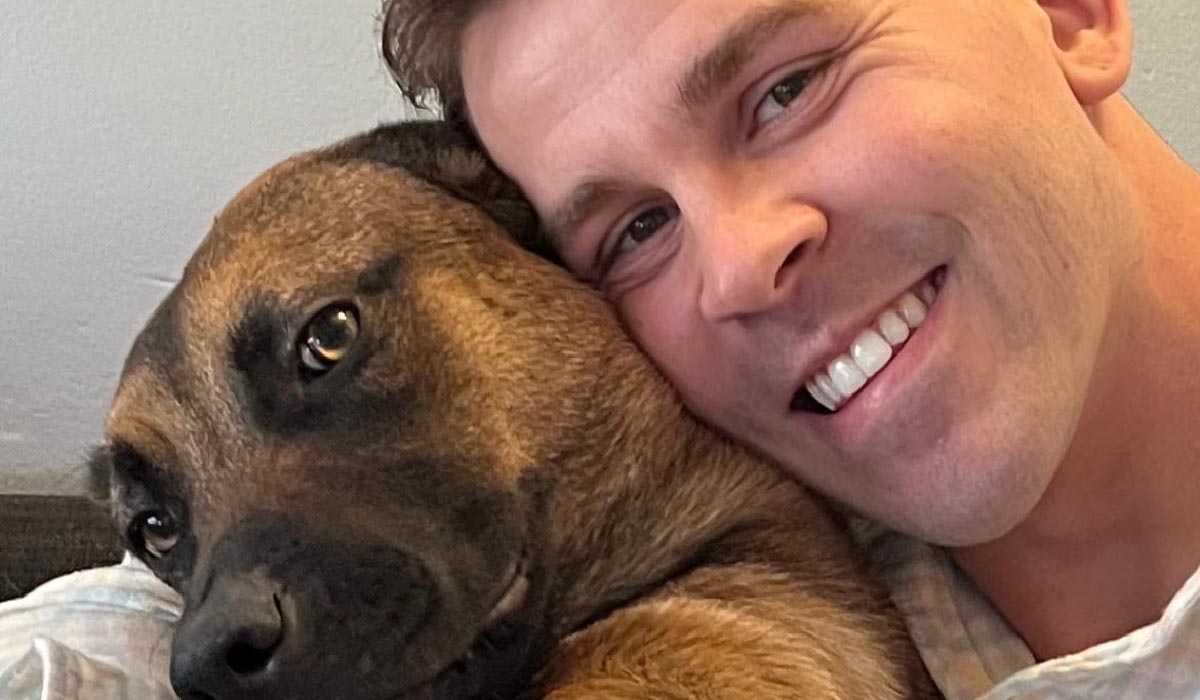"Public health has become a place for work that feels aligned with my experiences, skills, and values; it is a place where I can bring all of this to people and communities that have sustained me throughout my life."
First, I’d like to know a little bit about you as a person. Where did you grow up? Where did you attend undergrad and what was your degree/area of study?
[Ben] I grew up in Iowa City, IA, and I attended undergrad at Grinnell College, where I studied English literature and chemistry. I just completed my MS in Health Services Research, Policy & Administration here at the U of M School of Public Health. My focus in the program has largely been on LGBTQIA+ healthcare and communities.
What drew you to public health? OR How did you become interested in public health? OR What was that moment in your life when you decided you wanted to study public health?
[Ben] I never really knew what I wanted to do for a career, and ending up in public health has been the result of a lot of exploring. Many experiences led me here: my mom’s treatment and death from cancer in my late teenage years, working with health systems and technology after finishing undergrad, and my connection to and love for the queer community in every stage of my life. Public health has become a place for work that feels aligned with my experiences, skills, and values; it is a place where I can bring all of this to people and communities that have sustained me throughout my life.
What specific issue, problem, or area of research in public health do you care the most about and why? [Ben] The subtrack of my doctoral program here at SPH is in the sociology of health and illness, and I am invested in learning about how our social worlds–our relationships, our families, our communities–create and define our health and well being, especially in how our sexuality and gender are part of what helps us connect to each other, build community, and find joy in this life. That is why my research interests are heavily focused on LGBTQIA+ health.
How would you like to help address or explore this issue? [Ben] I take a structural approach towards addressing health disparities. Dominant ideologies, arising from violent histories, exist to control what is “normal” and what is not in regards to gender, sexuality, race, ability, and other factors. These systems of oppression and enforcement are embedded in our institutions and these maintain health inequities among marginalized people. Dismantling those different forms of oppression like racism, the patriarchy, heteronormativity, and the gender binary is essential to helping marginalized people..

Why did you choose to come to the U of M School of Public Health?
[Ben] There are a lot of reasons! Two main reasons come to mind. First, I grew up in Iowa and my partner has family here, so it is wonderful to be in close proximity to people I love. Second, SPH is a leader in sexual and gender health research, which was a big factor in why I applied and accepted admission to the program.
What are the reasons why you chose your program? What do you like about it? [Ben] I really like how the program takes an interdisciplinary approach towards public health. I have gotten to learn about a broad range of approaches, such as epidemiology, policy, and sociology–all of which are important for improving the health of communities. I like the flexible structure of the program, especially because I’m not yet sure what settings I’d like to work in after graduation. Being exposed to lots of different areas helps me learn what I like and prepare for life after school.
What has been your favorite class so far? [Ben] My favorite class has been Intersectional and Decolonizing Approaches to Transgender Health taught by Nic Rider and Taymy Caso. They both had an amazing approach towards transgender health, which has really influenced me and how I conduct my work. One huge takeaway from the course was learning about the rich and beautiful histories of gender-diverse communities that have existed as long as humans have.
What are you most excited about in SPH’s Strategic Plan for Antiracism?
[Ben] I believe the SPAR is a good approach. I am skeptical of how academic institutions often pat themselves on the back for “promoting diversity” instead of tackling the racist policies and practices that are embedded in these institutions and their histories. I would like to see more specific, concrete, and actionable goals realized; for example, I think the commitment to hiring more people of color as faculty and staff, as well as intentionally recruiting and retaining students of color, is an essential part of the plan.
What do you like about being in Minnesota?
[Ben] I enjoy the bike-friendly streets and the proximity to water in the city. I’ve spent a lot of my life in smaller, Midwest cities, so it is a good change to live in a bigger place that has more diversity. I’m excited about the opportunities to get more involved in advocacy and community organizing in Minneapolis.

